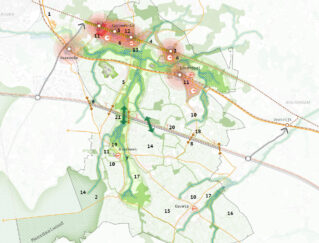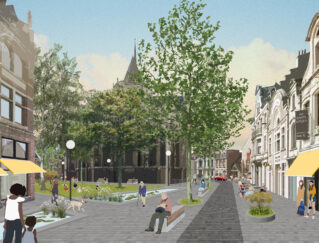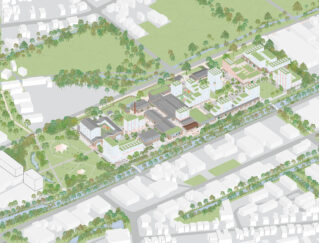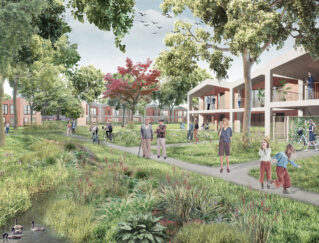Flanders’ is characterized by scattered spatial policy that has resulted in great loss of energy, biodiversity, time, money and space.
The ‘Bouwmeesterscan’ is a tool to help signal weaknesses and opportunities in spatial policy for local governments, and translates these into a concrete agenda of projects and policy changes for the transition towards a healthy and sustainable living environment. Spatial decisions are connected to challenges such as the energy transition, the mobility shift healthy urban environments and a balance between ecology and productive open space.
Halle is a Flemish municipality just south of Brussels that struggles with urbanization pressure from the capitol, where new projects threaten the continuity of open space. A bundle consisting of the canal, the Zenne river, railroads and regional car connections have cut the city in two. The two halves operate separately and out of balance.
By reconnecting the city we create opportunities for densification, greening and offering solutions for mobility challenges. Developments in the heart of the city act as a catalyst for the restoration of green connections, creek and river valleys and helps restructure mobility, energy and use of space.
The full report can be found on the website of the Flemish Bouwmeester: vlaamsbouwmeester.be
Status:Studie 2019
Team: Johan de Wachter, Joris van Arkel
Collaboration: PosadMaxwan
Client: Team Vlaamse Bouwmeester, Gemeente Halle
Location: Halle, BE
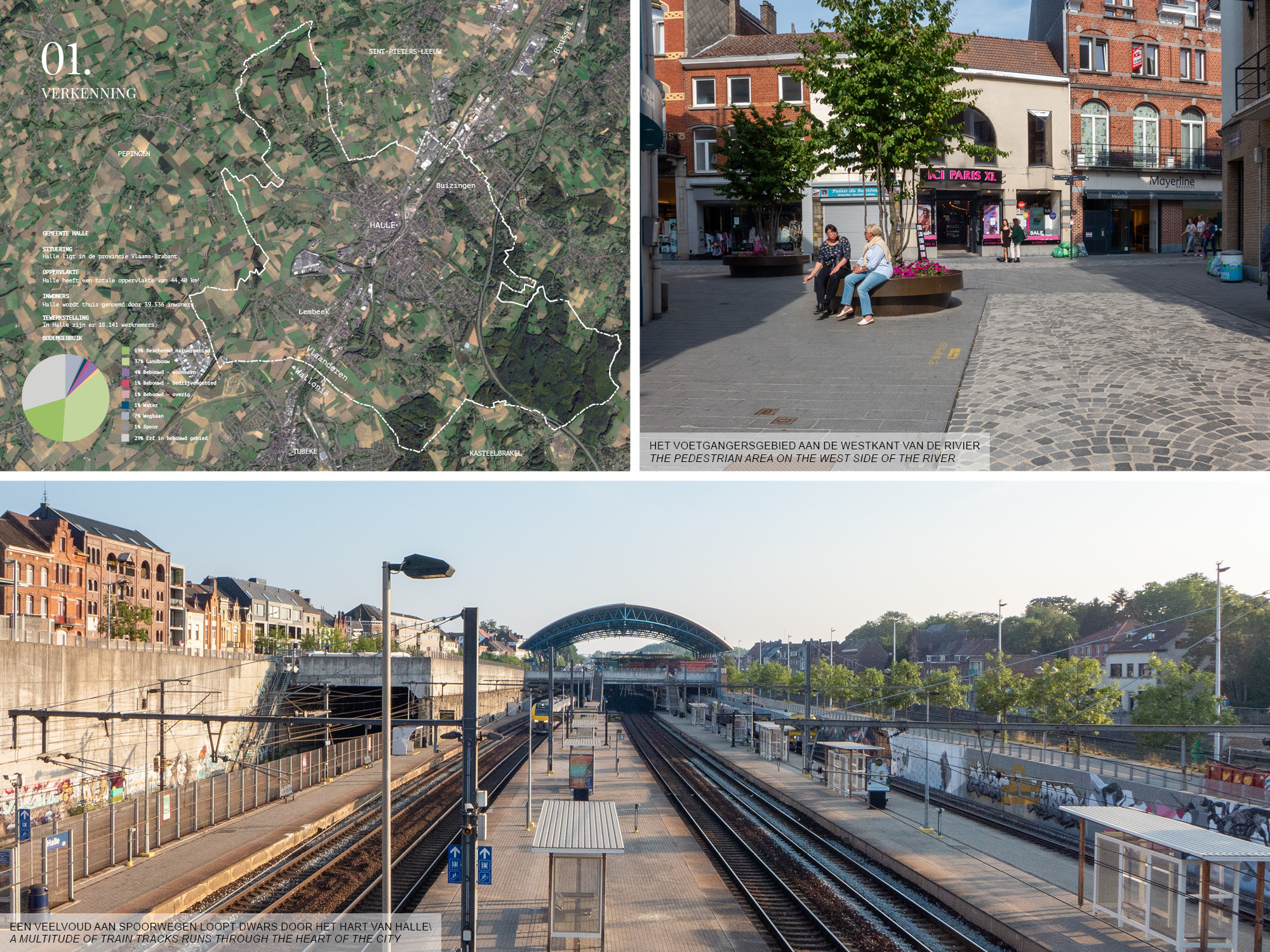
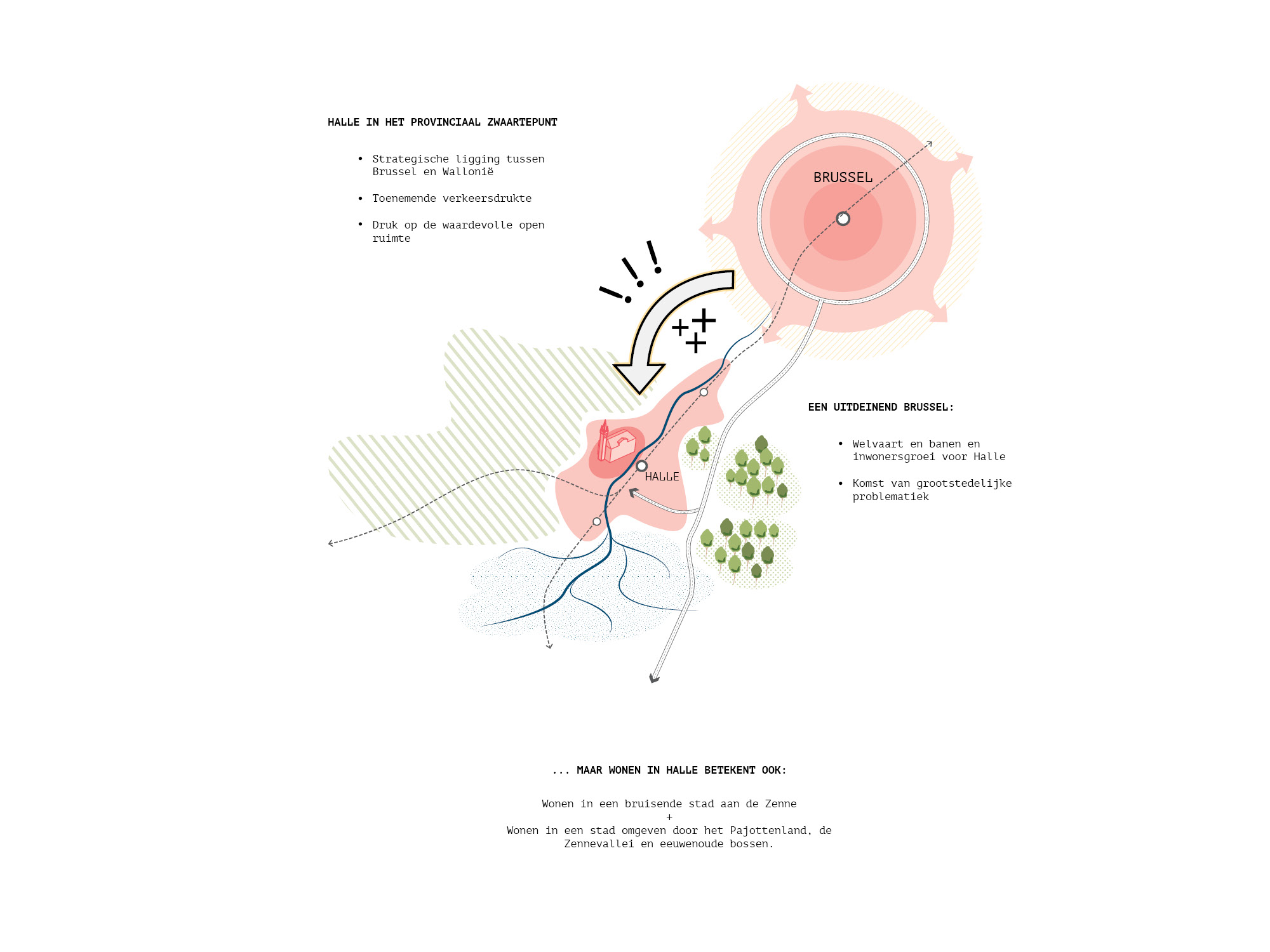
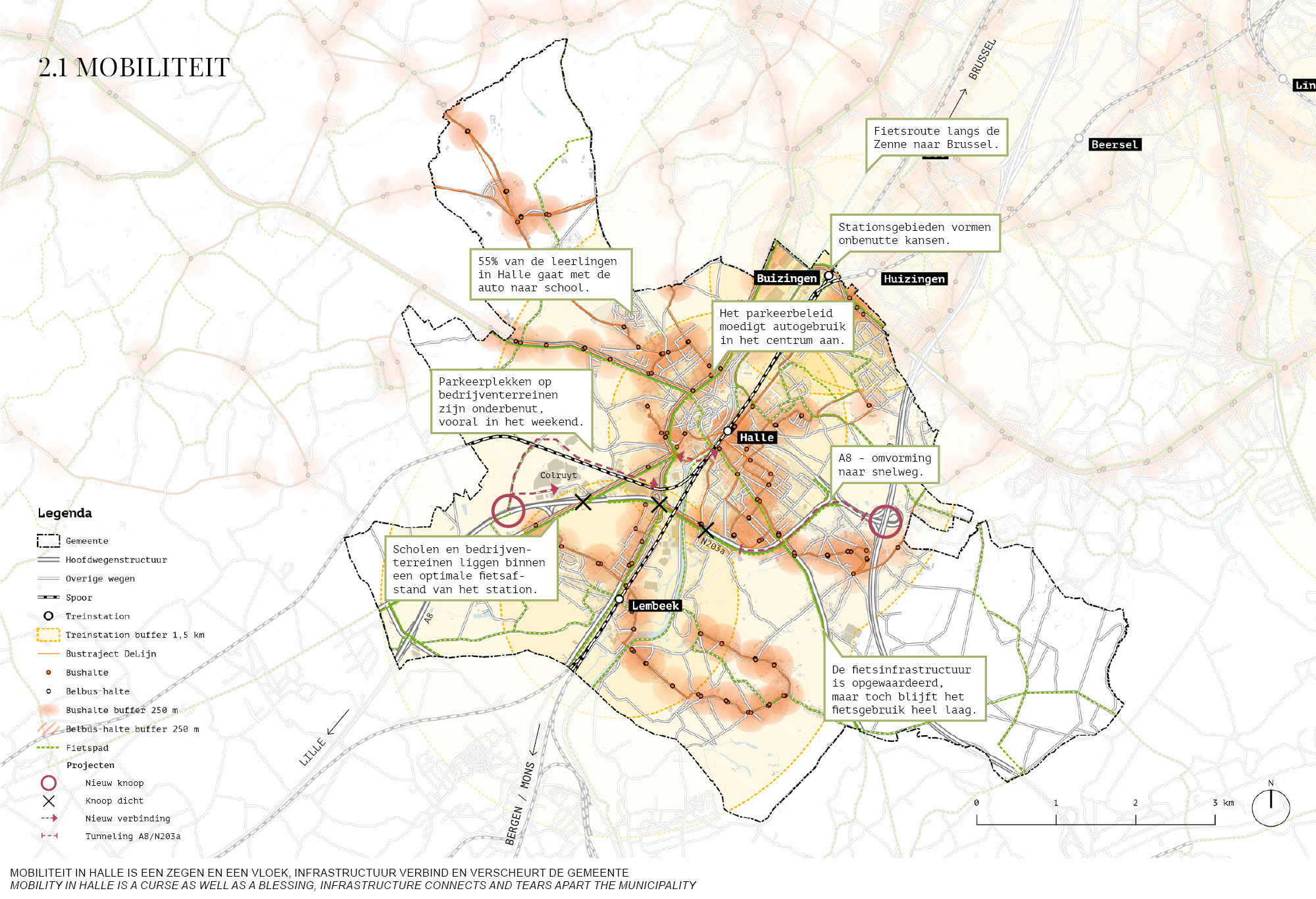
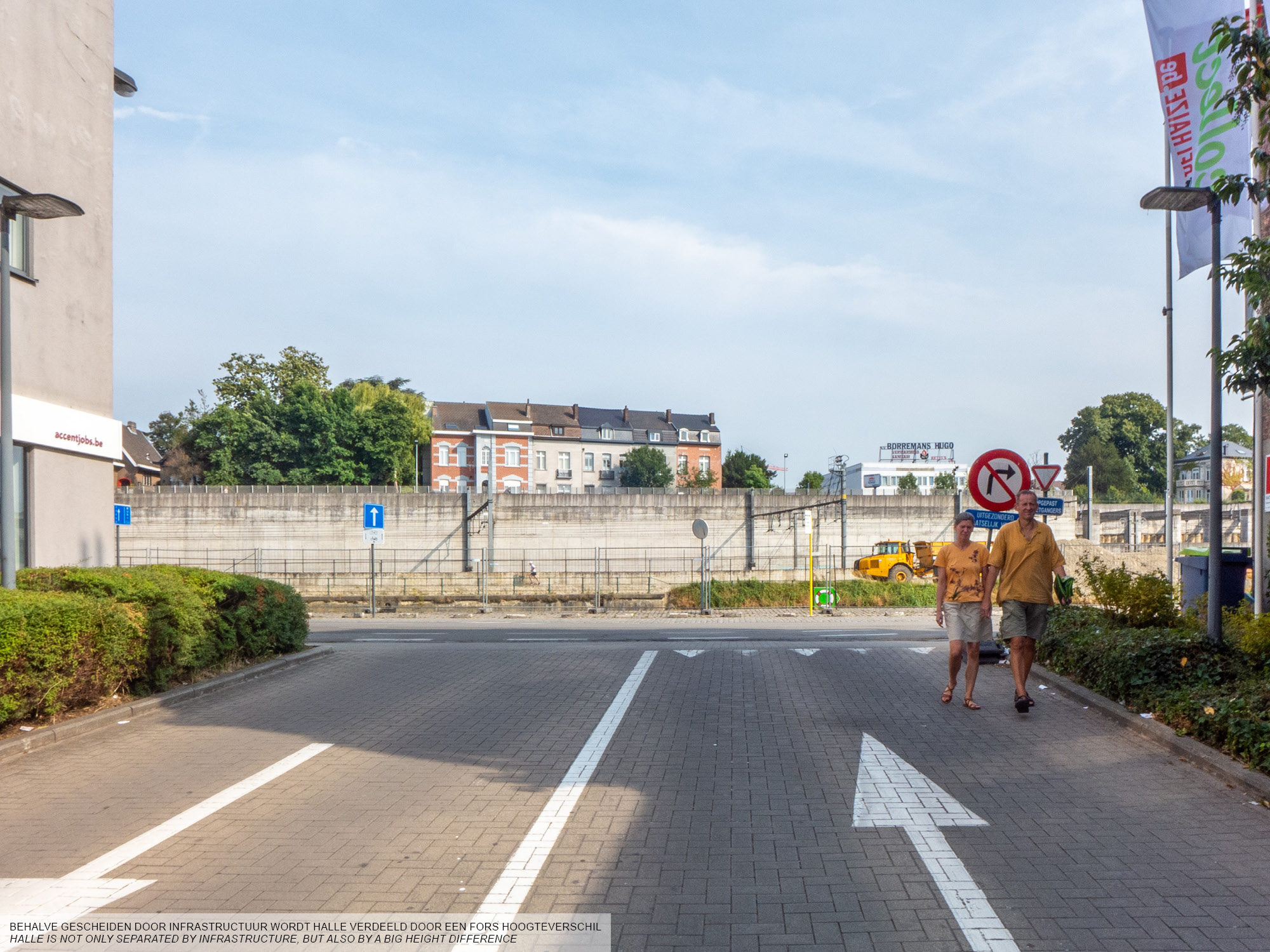
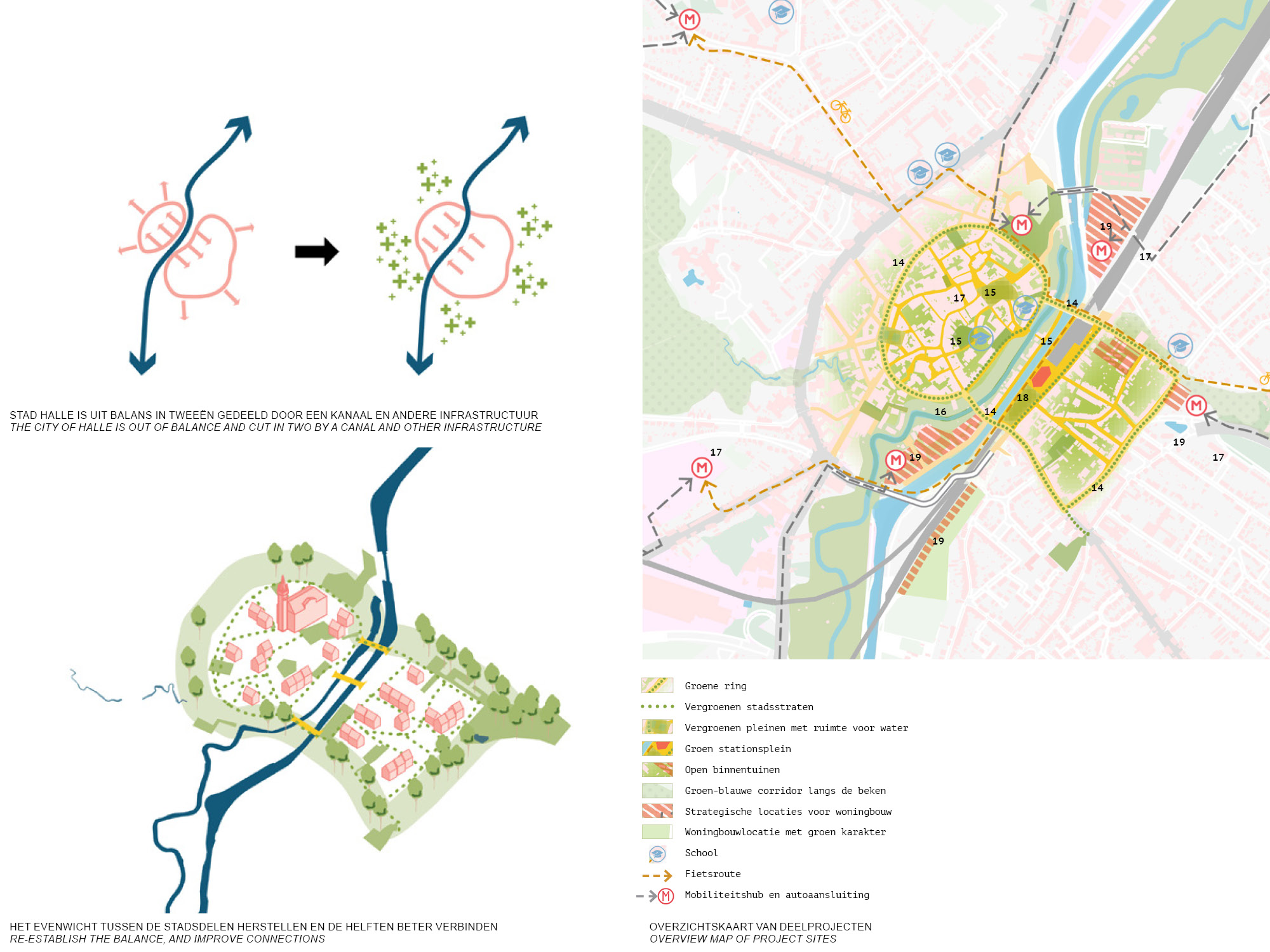
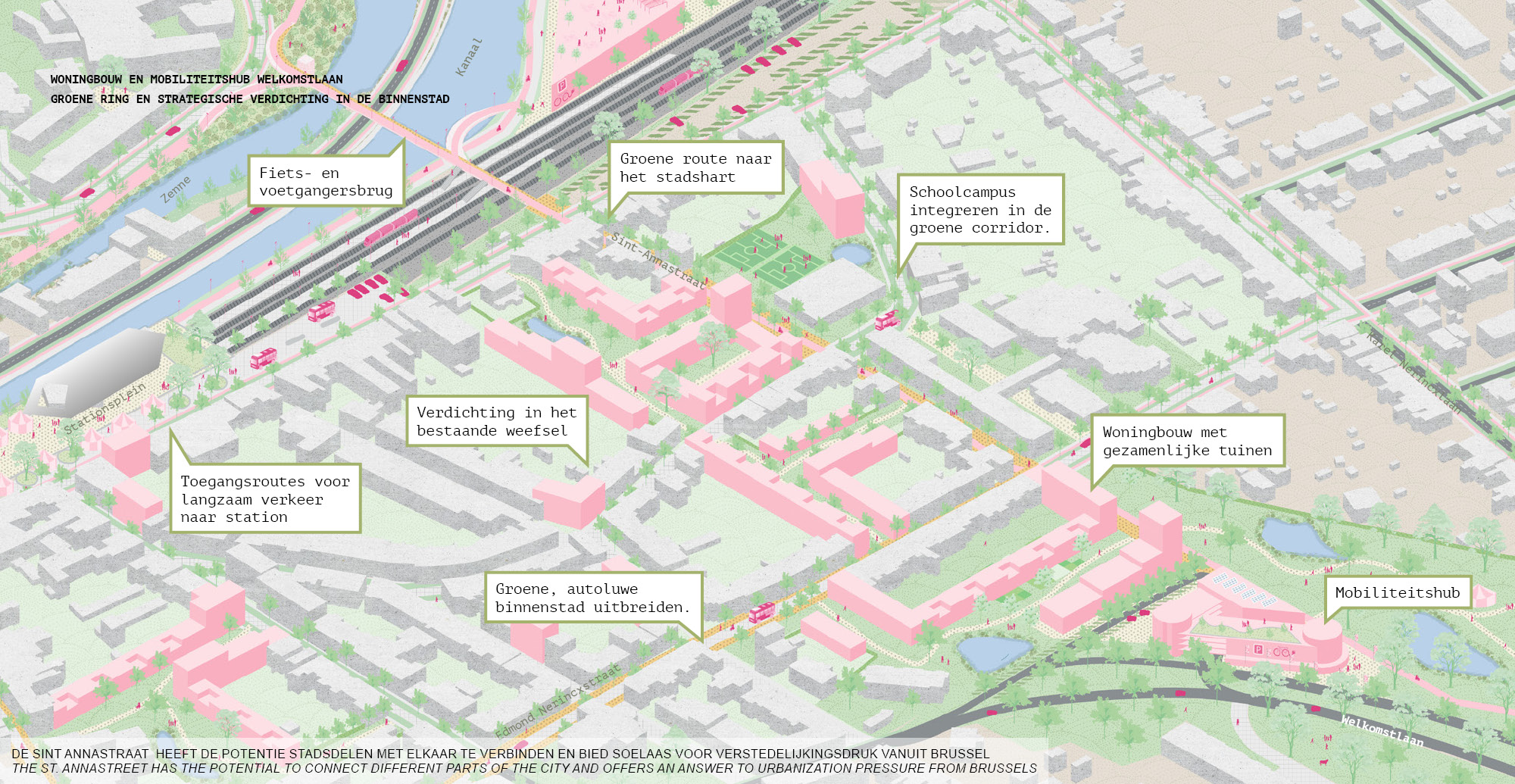
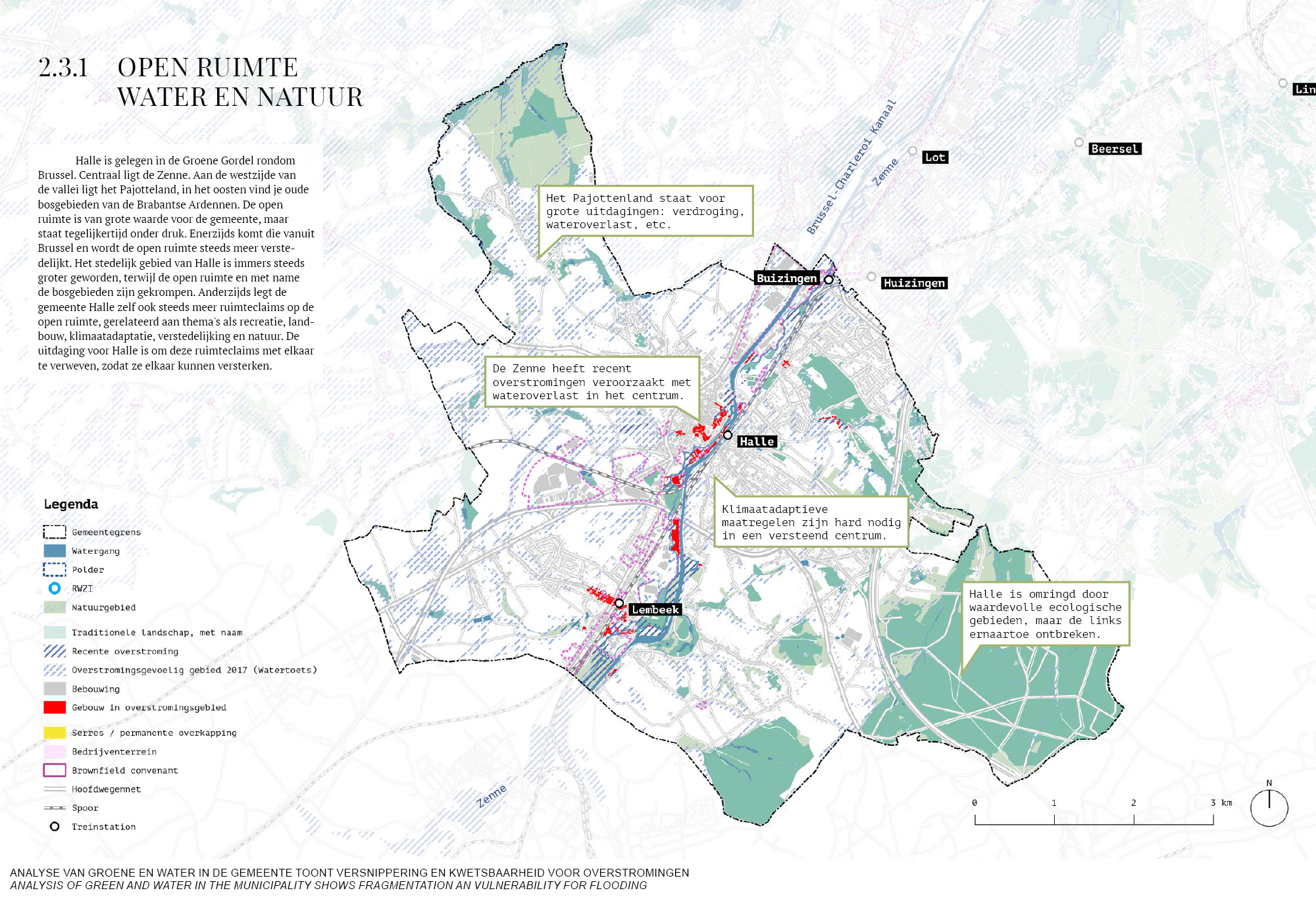
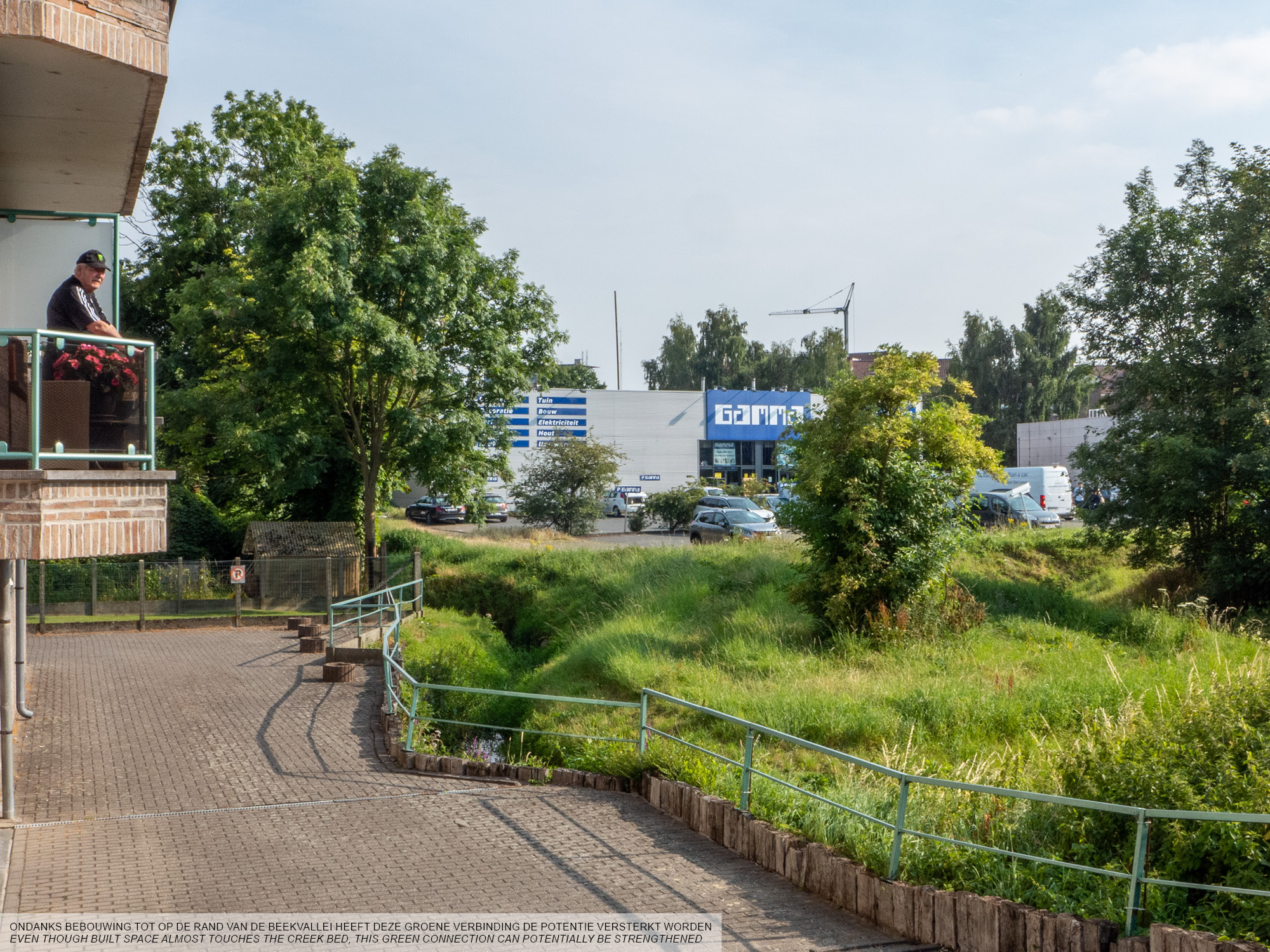
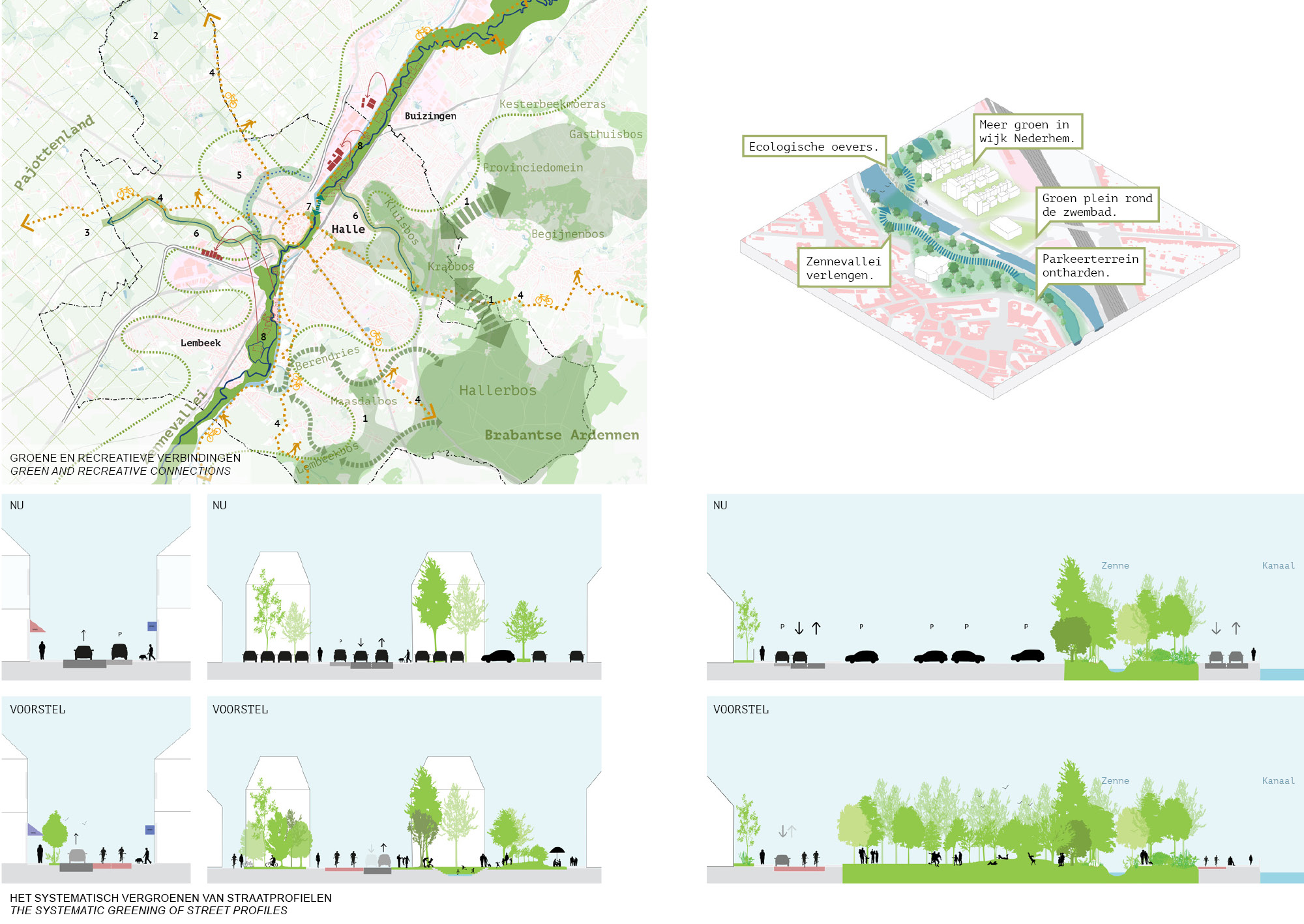
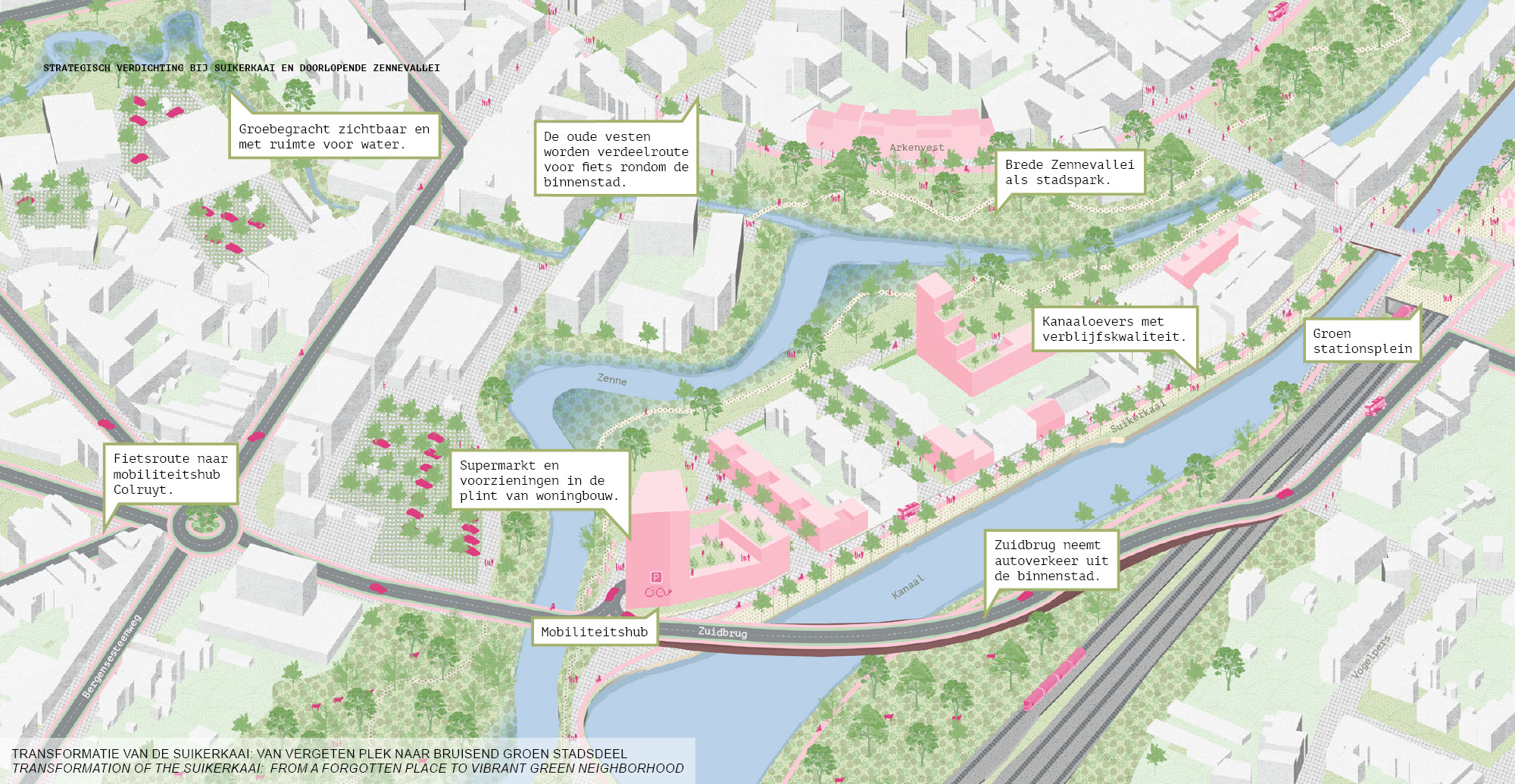
Flanders’ is characterized by scattered spatial policy that has resulted in great loss of energy, biodiversity, time, money and space.
The ‘Bouwmeesterscan’ is a tool to help signal weaknesses and opportunities in spatial policy for local governments, and translates these into a concrete agenda of projects and policy changes for the transition towards a healthy and sustainable living environment. Spatial decisions are connected to challenges such as the energy transition, the mobility shift healthy urban environments and a balance between ecology and productive open space.
Halle is a Flemish municipality just south of Brussels that struggles with urbanization pressure from the capitol, where new projects threaten the continuity of open space. A bundle consisting of the canal, the Zenne river, railroads and regional car connections have cut the city in two. The two halves operate separately and out of balance.
By reconnecting the city we create opportunities for densification, greening and offering solutions for mobility challenges. Developments in the heart of the city act as a catalyst for the restoration of green connections, creek and river valleys and helps restructure mobility, energy and use of space.
The full report can be found on the website of the Flemish Bouwmeester: vlaamsbouwmeester.be
Status:Studie 2019
Team: Johan de Wachter, Joris van Arkel
Collaboration: PosadMaxwan
Client: Team Vlaamse Bouwmeester, Gemeente Halle
Location: Halle, BE
Flanders’ is characterized by scattered spatial policy that has resulted in great loss of energy, biodiversity, time, money and space.
The ‘Bouwmeesterscan’ is a tool to help signal weaknesses and opportunities in spatial policy for local governments, and translates these into a concrete agenda of projects and policy changes for the transition towards a healthy and sustainable living environment. Spatial decisions are connected to challenges such as the energy transition, the mobility shift healthy urban environments and a balance between ecology and productive open space.
Halle is a Flemish municipality just south of Brussels that struggles with urbanization pressure from the capitol, where new projects threaten the continuity of open space. A bundle consisting of the canal, the Zenne river, railroads and regional car connections have cut the city in two. The two halves operate separately and out of balance.
By reconnecting the city we create opportunities for densification, greening and offering solutions for mobility challenges. Developments in the heart of the city act as a catalyst for the restoration of green connections, creek and river valleys and helps restructure mobility, energy and use of space.
The full report can be found on the website of the Flemish Bouwmeester: vlaamsbouwmeester.be
Status:Studie 2019
Team: Johan de Wachter, Joris van Arkel
Collaboration: PosadMaxwan
Client: Team Vlaamse Bouwmeester, Gemeente Halle
Location: Halle, BE

